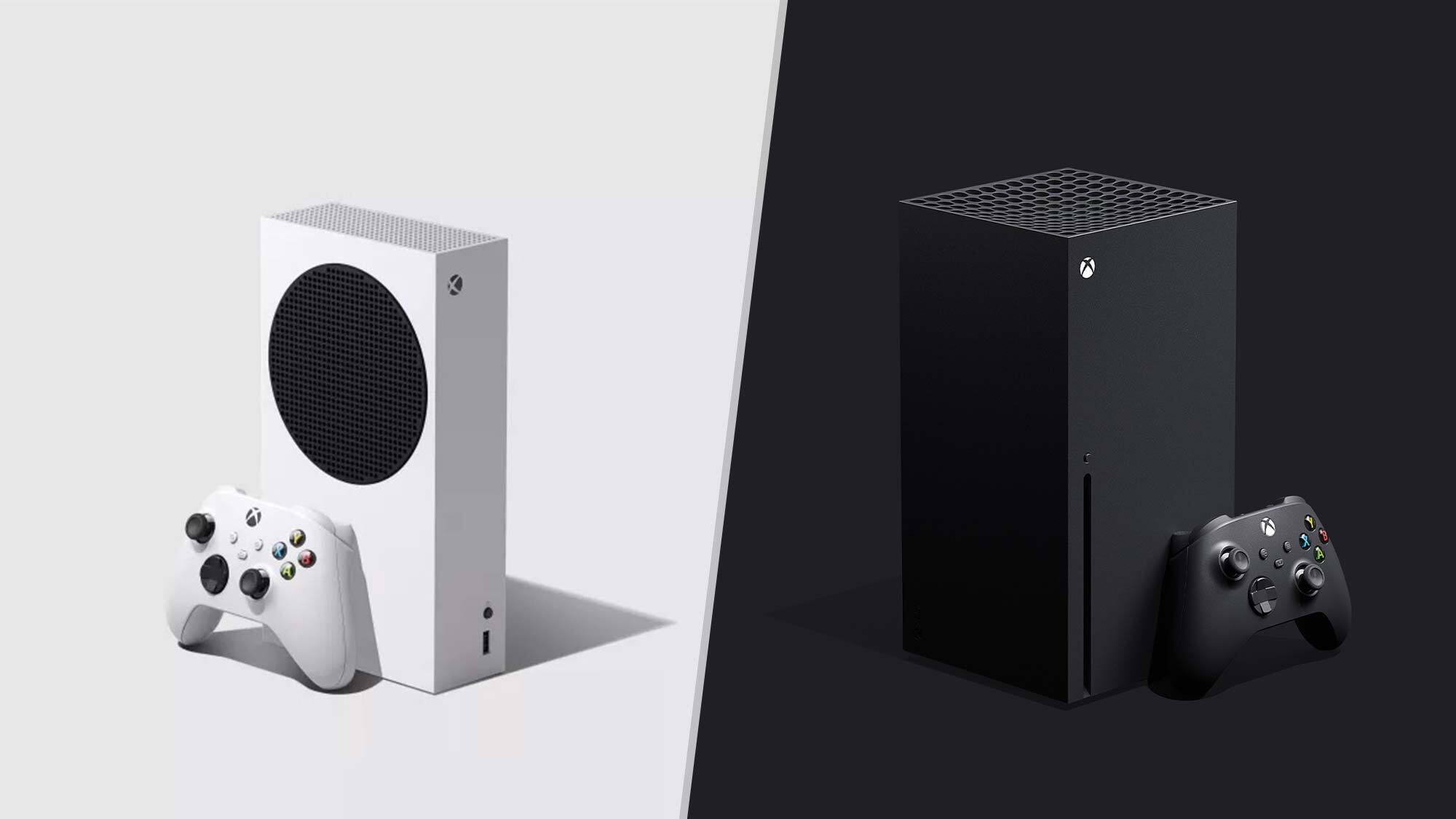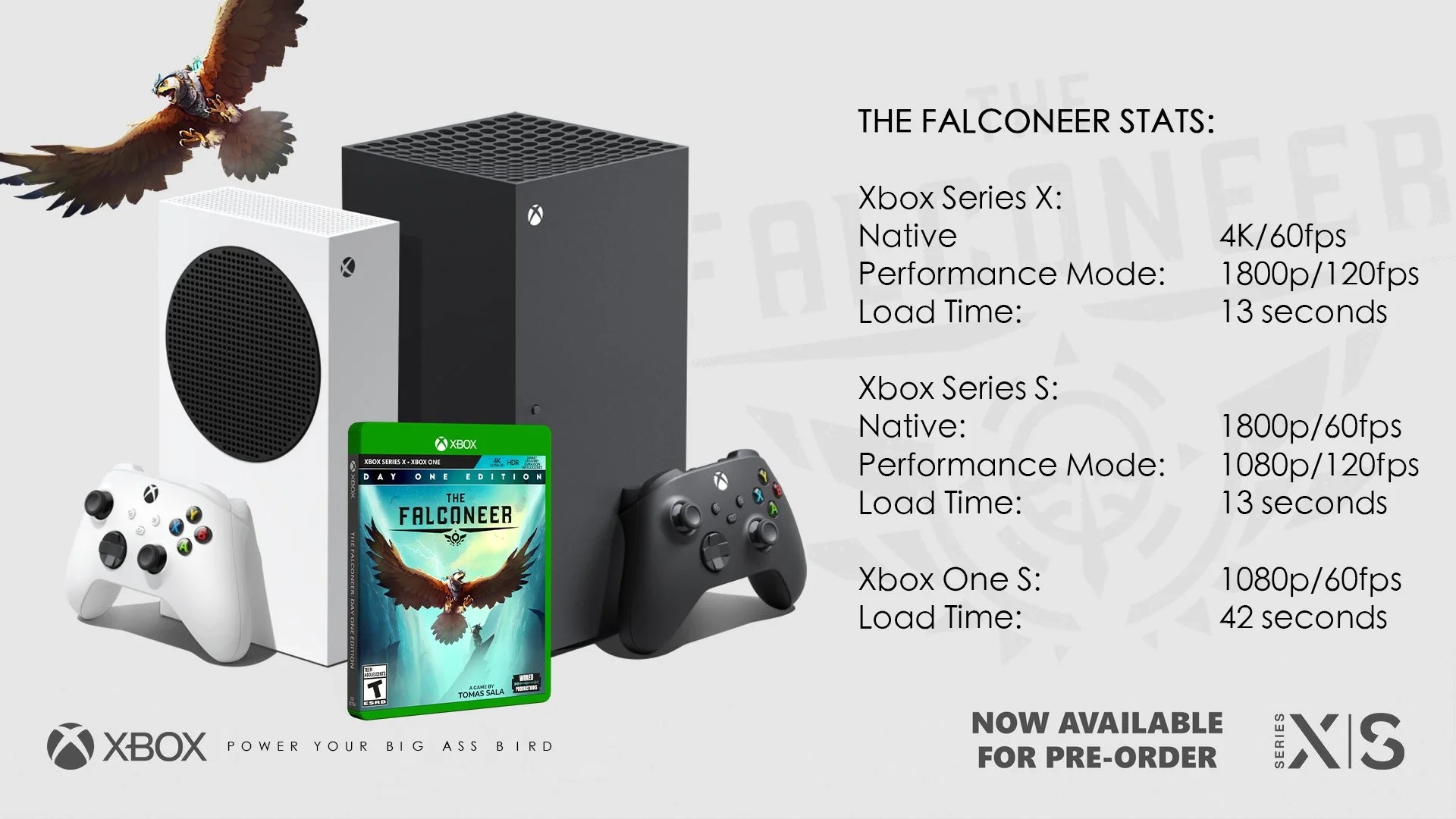Forget Xbox Series X — cheaper Xbox Series S performance looks great
Developer reveals how his game performs on three different Xbox consoles

We know the theoretical benefits of paying $499 for an Xbox Series X over $299 for an Xbox Series S. Microsoft has been clear that the former is targeting smooth 4K gaming, while the latter has the more modest goal of solid 2K performance.
But how do games actually perform across the systems? And, for that matter, if games support Smart Delivery, how do they perform on Xbox One? As it turns out, the Xbox Series S may deliver the results you need for a very good price.
- PS5 vs Xbox Series X: Which is better?
- See all the new Xbox Series X games
- Plus: Nvidia RTX 3080 just got more difficult to buy — here's why
Thanks game developer Tomas Sala, we have several interesting data points. The Falconeer’s creator took to Twitter to reveal how the game runs on Xbox Series X, Xbox Series S and a current-generation Xbox One S.

As you can see, the Xbox Series X lives up to its performance promise, providing 60fps gameplay at 4K – or for those with 120Hz television sets, a performance mode offering 120fps at 1800p.
Meanwhile, Xbox Series S provides 1800p gameplay at 60fps, or 120fps if you’re happy to drop to 1080p. Both platforms, thanks to the presence of SSD storage, promise load times of just 13 seconds.
On an Xbox One S, however, you still get 60fps gameplay at 1080p, but load times are more than tripled to 42 seconds.
Sala went into a little more detail on the Unity blog. The Series X version runs as it would on a high-end PC with “all the anti-aliasing” and “all those fancy effects”, but he notes that both the Series S and X offer a “very similar experience.”
Sign up to get the BEST of Tom's Guide direct to your inbox.
Get instant access to breaking news, the hottest reviews, great deals and helpful tips.
This is just one game, of course, but it’s promising to see good performance across the board. Sala is extremely complimentary to both next-generation Xboxes, saying that “there’s really no tradeoff between graphics and performance with this generation.
“One of the big surprises for me is just how powerful the Series S is, it’s such a significant piece of hardware in a small form factor,” he explains. “This is a powerful piece of next-gen hardware.”
Elsewhere, Sala has suggested that the power of next-generation consoles is such that it could change the way people develop games. Developers will potentially no longer be forced to use tricks to create the illusion of living environments. “In most videogames things just stop being alive at a certain distance from the player; if they’re not on-screen they just cease to exist in the simulation, or some simplified simulation would take over,” he told Xbox Wire.
“When you wanted a more complex simulation you would have to spend so much of your time optimising the simulation just to make it perform. I think that’s something the new generation offers – more complex enemies and ecologies filled with creatures and enemies all exhibiting more interesting behaviours. The big advantage I think will be in open-world games, where we can stop using smoke and mirrors to create an illusion for players, and focus on building more simulated worlds.”
We’re unlikely to see the full power of next-generation consoles to begin with – especially with cross-platform games and remakes making up a large chunk of the launch list. But The Falconeer’s promised performance is still an enticing taste of what’s to come in the next five years.
- Next: Where to buy Xbox Series X and Xbox Series X
Freelance contributor Alan has been writing about tech for over a decade, covering phones, drones and everything in between. Previously Deputy Editor of tech site Alphr, his words are found all over the web and in the occasional magazine too. When not weighing up the pros and cons of the latest smartwatch, you'll probably find him tackling his ever-growing games backlog. Or, more likely, playing Spelunky for the millionth time.


